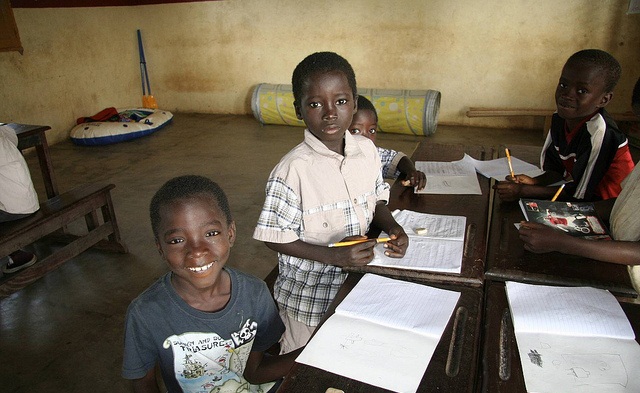
Canchungo, Guinea-Bissau | AFP | The school year is ending in the west African nation of Guinea-Bissau, but some pupils will hardly notice the difference.
Long-running pay disputes have kept teachers out of the classrooms for long stretches of the last four decades in this former Portuguese colony, where a dysfunctional government struggles to provide basic services to its citizens.
The problem is so acute that despite widespread poverty, parents have launched an initiative to pay all, or part of teachers’ salaries directly, hoping their children will not miss out on more precious years in the classroom.
“We thought it was necessary to create a sustainable programme to try and give our children a year at school, asking for a contribution from each parent,” said Alberto Suleimane Djalo, head of the parents’ association at Ho Chi Minh high school in the northern town of Canchungo.
“We have around 150-200 parents who support us,” he added.
Local official Pedro Mendes Pereira described the Canchungo school community as heavily drawn from “impoverished” rural areas in the west African nation, who nonetheless began making payments “so that the teachers don’t go on strike”.
Teachers’ salaries are erratic if they are paid at all and drawn-out strikes are common in this small, unstable nation.
An ongoing government shutdown and, in previous years, a succession of coups d’etat have eroded the normal functioning of the state — and its ability to pay salaries.
Meanwhile, the country’s national parents’ association is experimenting with autonomous schools in the northern Cacheu and southern Quinara regions, setting households a monthly fee of 500 CFA Francs (75 euro cents) per child.
“We want to roll this out in every region of the country,” said Papa Landim, the president of the national parents’ group.
– Cashews for courses –
The refusal by many teachers to show up for work has also prompted innovative schemes by parents to help staff return to their place at the front of the classroom.
In the village of Eticoga on the distant island community of Orango Grande, six hours by boat from the capital Bissau, parents contribute five-kilogram (11-pound) sacks of cashews, rice, fish or palm oil, which is sold at market in the closest town or on the mainland.
The money collected is kept in a communal pot guarded by the village chief and used to pay the costs of a dozen teachers in charge of almost 300 children in the local area, as well as school maintenance.
 The Independent Uganda: You get the Truth we Pay the Price
The Independent Uganda: You get the Truth we Pay the Price






Thank God the parents are responding to their children’s needs rather than to what the restrictions of the government are!